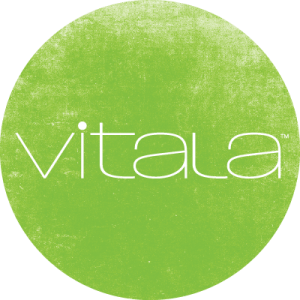A Heated Battle: Raw vs. Cooked Foods
A couple of years ago, I went to a food show in Vancouver and listened to a talk on raw foods. The speaker did a demonstration where he prepared a raw zucchini pasta with a creamy nut sauce. I have to admit, I was surprised that it was quite good, as I hadn’t eaten many meals that were 100% raw. The speaker also claimed that for those who embarked on a raw foods diet, they would have wonderful health with numerous ailments being cleared up. Well raw food diets are very high in plant foods, especially fruits and vegetables – so they should be good for you, right? Plus proponents claim that the enzymes in raw “living” foods increase their digestibility. So I decided to investigate the scientific research to find out if these claims were really true and how healthy a raw foods diet actually is. What I found really surprised me…
Definition of a Raw Foods Diet
First of all, what exactly is meant by a raw foods diet? Although, there is no strict universal definition, it is most commonly described as an uncooked vegan diet(1), thus in most cases animal foods are excluded. Foods are considered raw as long as they are not heated up past 118⁰F and this low level of heating is accomplished using a food dehydrator(1).
Does Cooking Really “Harm” the Enzymes in the Food?
Raw food advocates claim that the live enzymes in uncooked plant foods help with digestibility; upon cooking these enzymes are destroyed and can no longer assist with digestion. While it is true that cooking denatures enzymes, the acidic environment in the stomach also inactivates the enzymes in food(2). Fortunately, our bodies produce all of the enzymes we need to digest our food.
Health Effects of a Raw Foods Diet
Now the part you have really been waiting for… the health benefits vs. risks of a raw foods diet. Some research suggests that a raw foods diet may help reduce symptoms of rheumatoid arthritis and fibromyalgia(3–5). Because raw foods diets are so high in fruits, vegetables, nuts and seeds, they provide many antioxidants that have anti-inflammatory effects, which may benefit those suffering from rheumatoid arthritis and fibromyalgia.
However, in order to really find out if this diet is safe as a lifestyle, we really need to look at the effects of a raw foods diet over the long-term. While there are only a few studies on the health effects of a raw food diets after a number of years, I was surprised to find out that the results don’t look so good for the raw foodies. They have low bone mass(6), are underweight and females often miss their periods(7), meaning they would have trouble having children. For these reasons, a strict raw foods diet is not recommended over the long-term and “has to be considered a health risk if practiced for a long time(7).” Raw foods diets may be particularly risky for infants and children, due to the fact that they are associated with impaired growth(1).
So why is a strict raw foods diet harmful when it contains so many healthy plant foods? The answer may be due to the diet’s variety. Eating a wide variety of foods is a cornerstone of a healthy diet as it ensures that many different nutrients are consumed.
Raw foods diets are very restrictive as they are primarily composed of fruits, vegetables, nuts and seeds, while meat, eggs, dairy products and grains are largely avoided. One research study evaluating the diet of leaders from within raw foods community, found that on average their diet met or exceeded recommendations for intake of vegetables, fruits and fats, but fell below recommended intakes of calcium-rich foods, protein-rich foods and grains(2).
Furthermore, the lack of animal foods in the diet means that the diet is deficient in B-12 and researchers have observed poor vitamin B-12 status in raw food dieters(8,9). Vitamin B-12 deficiency in raw food dieters is linked to low levels of good (HDL) cholesterol and high levels of homocysteine, which mark poor cardiovascular health(8). Adequate vitamin B-12 levels are also incredibly important for the health of the brain.
Additionally, cooking food is thought to increase the energy available from food(10). Although I won’t get into the details, cooking is actually thought of as a way of predigesting food because it helps with digestibility of starch and protein. As an added bonus, cooking also kills any food borne pathogens, which reduces the energy cost for the immune system to fight pathogens. Therefore a raw foods diet is thought to provide less available energy than a cooked diet, which may explain why raw foodies report being consistently hungry despite eating regularly(10) and why they tend to lose weight to the point where they are underweight.
My Take
I think that most of us can stand to eat more plant foods, such as fruits, vegetables, nuts and seeds, which provide many health benefits in their raw form (although I recommend cooking starchy vegetables like potatoes to increase their digestibility). BUT, the key is including a variety of foods, including those that are cooked. So what’s for dinner tonight? I don’t know yet, but I’m pretty sure that its preparation will involve my trusty stove.
Reference
3. Hänninen et al. Antioxidants in vegan diet and rheumatic disorders. Toxicology 155, 45–53 (2000).
